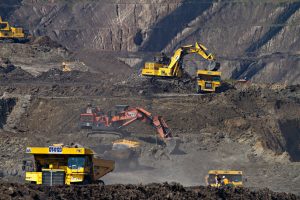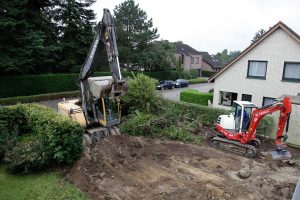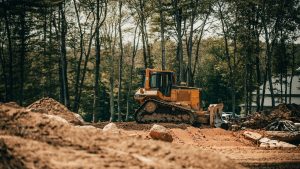Excavation is a crucial process in construction and development, but it’s not without its environmental consequences. At Utah Excavation Company, we are committed to minimizing the impact of our work on the environment. In this article, we’ll explore the environmental effects of excavation and the steps we take to reduce them.
The Environmental Effects of Excavation
Excavation, by its nature, involves the disruption of the earth’s surface. This disruption can lead to several environmental issues:
1. Soil Erosion
The removal of vegetation and topsoil during excavation leaves the ground vulnerable to erosion. Rainwater can wash away exposed soil, leading to sediment runoff into nearby water bodies.
2. Habitat Disturbance
Excavation can disrupt local ecosystems and habitats. This can have adverse effects on wildlife and plant species in the area.
3. Air Pollution
Heavy machinery used in excavation can emit pollutants into the air, contributing to air quality problems and health concerns.
4. Water Contamination
If not managed properly, excavation can lead to the contamination of groundwater and surface water with pollutants from the construction site.
Minimizing the Environmental Impact
At Utah Excavation Company, we prioritize environmental responsibility and take several steps to minimize the impact of our excavation work:
1. Soil Erosion Control
To prevent soil erosion, we implement erosion control measures. These include the use of silt fences, erosion control blankets, and sediment basins to capture runoff and prevent soil from reaching water bodies.
2. Vegetation Preservation
Wherever possible, we aim to preserve existing vegetation on the site. Trees and plants help stabilize the soil and provide habitat for wildlife.
3. Responsible Disposal
We ensure that all excavation materials, including soil and debris, are disposed of responsibly. This may involve recycling materials or transporting them to appropriate disposal sites.
4. Dust Control
To mitigate air pollution, we employ dust control measures. These include watering down dusty areas and using dust control agents to suppress airborne particles.
5. Eco-Friendly Equipment
We invest in modern, eco-friendly excavation equipment that meets emissions standards and minimizes the environmental impact.
6. Sustainable Practices
Utah Excavation Company actively promotes sustainable excavation practices. This includes minimizing the use of resources, reducing waste, and optimizing project designs for environmental friendliness.
7. Compliance with Regulations
We strictly adhere to local, state, and federal regulations governing excavation and environmental protection. This ensures that our work meets or exceeds established environmental standards.
Conclusion
Excavation is a necessary part of construction and development, but it doesn’t have to come at the expense of the environment. By taking proactive steps to minimize soil erosion, preserve vegetation, responsibly dispose of materials, control dust, and adhere to regulations, we can ensure that excavation projects are conducted with minimal environmental impact.
At Utah Excavation Company, we are committed to environmental responsibility in every project we undertake. If you require excavation services that prioritize both your project’s success and the well-being of the environment, contact us at 801-515-4932 or visit our website https://utexcavation.com/. Together, we can build a sustainable and eco-friendly future.




